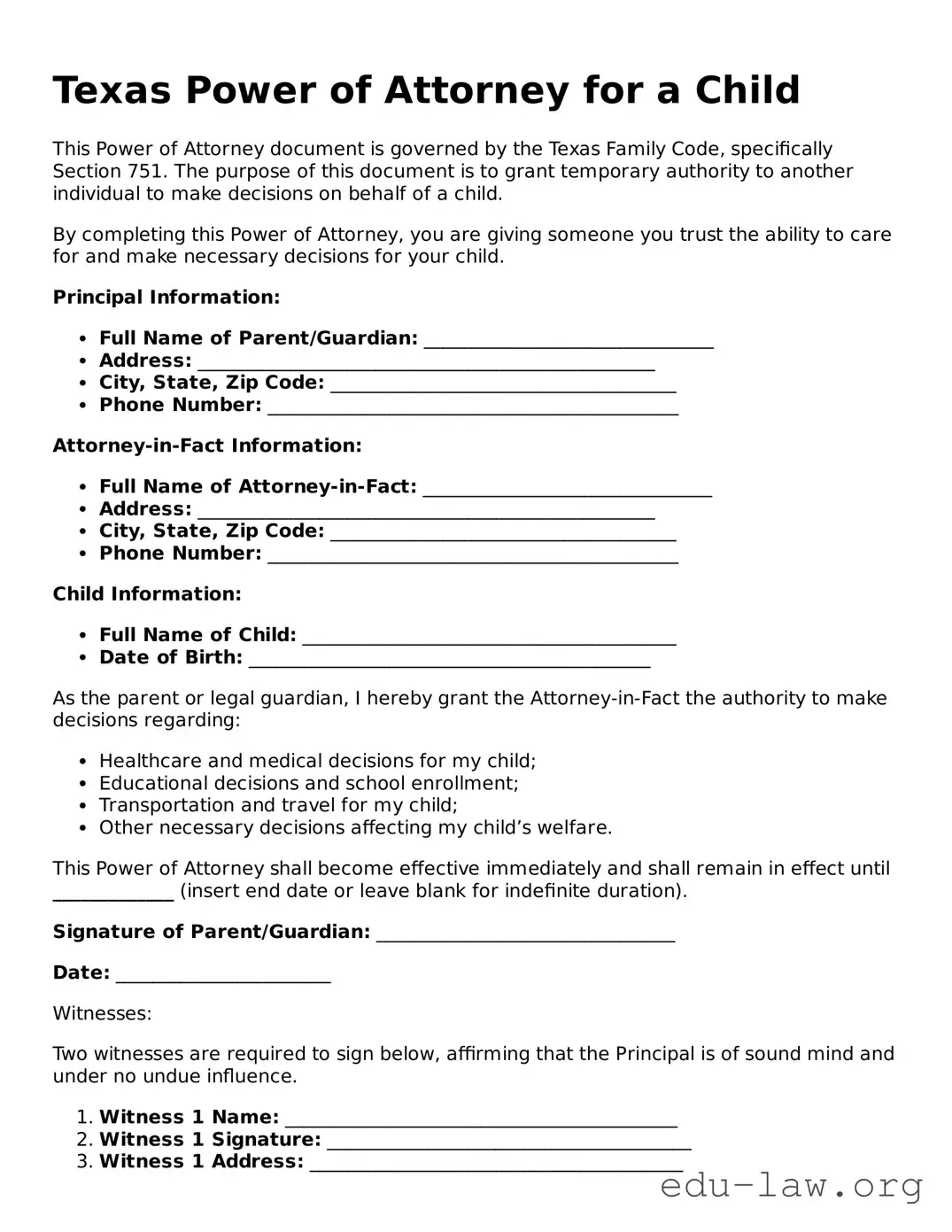What is a Texas Power of Attorney for a Child form?
This form allows a parent or legal guardian to temporarily delegate their authority to another adult to make decisions and take action on behalf of their child. It is typically used when parents are unable to care for their child due to travel, work commitments, or other circumstances. The designated adult, often referred to as the "agent," can manage the child's needs, including medical care, education, and day-to-day decisions.
Who can act as an agent under this form?
The agent can be any responsible adult who is willing to take on this role. Common choices include family members, friends, or trusted caregivers. It’s essential to select someone who understands the responsibilities and will act in the best interests of the child.
How long is the Power of Attorney for a Child valid?
The duration of the Power of Attorney for a Child is specified within the form itself. Parents can establish a start and an end date for the authority granted to the agent. If no end date is specified, the authority may remain in effect until revoked or until the child reaches adulthood.
Can the Power of Attorney be revoked?
Yes, a parent or legal guardian can revoke the Power of Attorney at any time. This can be done through a written notice to the agent and it’s advisable to document the revocation in a way that ensures clarity and avoids confusion.
Do I need to notarize the Power of Attorney for my child?
Yes, it is required to have the form notarized in Texas. This step provides a level of assurance regarding the legitimacy of the document and the identities of those involved. A notary public can often be found at banks, law offices, or specialized notary services.
Are there any limitations on the agent’s authority?
Yes, parents can specify limitations in the Power of Attorney document itself. Certain actions, like making health care decisions or signing documents, can be either granted or restricted. Be sure to read through the available options and clearly state what the agent can or cannot do.
Is a Power of Attorney for a Child necessary if I have custody?
While it may not be strictly necessary if you have full custody, a Power of Attorney can be very beneficial. It allows for seamless care and decision-making in your absence. This can help avoid potential complications if emergencies arise and you are not available to act on behalf of your child.
Where can I obtain a Power of Attorney for a Child form?
You can find this form through various sources. Local government offices, legal aid organizations, and online legal services typically provide access to the form. Ensure that you are using an up-to-date version that complies with Texas laws.
